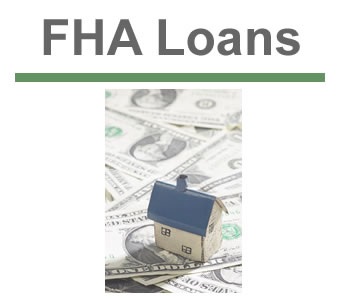 Now increasing in popularity, FHA loans are geared toward low- and moderate-income homebuyers. Yet, even with its looser qualifications, this government mortgage has several types of programs, some of which may benefit a borrower’s background more than others.
Now increasing in popularity, FHA loans are geared toward low- and moderate-income homebuyers. Yet, even with its looser qualifications, this government mortgage has several types of programs, some of which may benefit a borrower’s background more than others.
Adjustable Rate Mortgage. A HUD mortgage for families looking to transition into homeownership, FHA ARMs can be combined with other FHA programs, initially have lower interest and payments, and rates increase or decrease over time. This program is ideal when average mortgage rates are high and for borrowers who have previously been denied a loan.
Fixed Rate. The most popular FHA loan, fixed rate mortgages are geared toward the first-time home-buyer. This option lets the borrower finance up to 97 percent of the loan, which keeps the down payment and closing costs low. This is the only FHA loan on which all of the closing costs can be a gift from a relative, nonprofit, or government agency.
Energy Efficient. For both existing and potential homebuyers, energy-efficient FHA loans are designed to lower monthly bills. The loan covers energy-efficient improvements made to a property, including an existing one, and eliminates the inconvenience of taking out a separate home improvement mortgage.
Graduated Payment Mortgages. This program is ideal for low- to moderate-income buyers who expect their income to increase over the next five to 10 years. Payments increase with the borrower’s earning potential.
Growing Equity Mortgages. Designed for first-time homebuyers, young families, those unable to pay the upfront costs, and those who expect their income to grow, growing equity FHA mortgages have payments that start small and increase over time. For this loan, additional payments are applied toward the principal to reduce the mortgage term, and homeowners interested in reducing these terms have the option to add scheduled increases to their monthly payments.
Condominium Loans. This FHA loan is an option for renters who want to keep the property if their apartment building is being converted to condominiums. Insured for 30 years, the loan allows the renter to purchase the unit and extends the affordable mortgage credit to those with nonconventional forms of homeownership.

 NMLS: 2576 | CT LICENSE: 1101 | MA LICENSE: LS2576
NMLS: 2576 | CT LICENSE: 1101 | MA LICENSE: LS2576